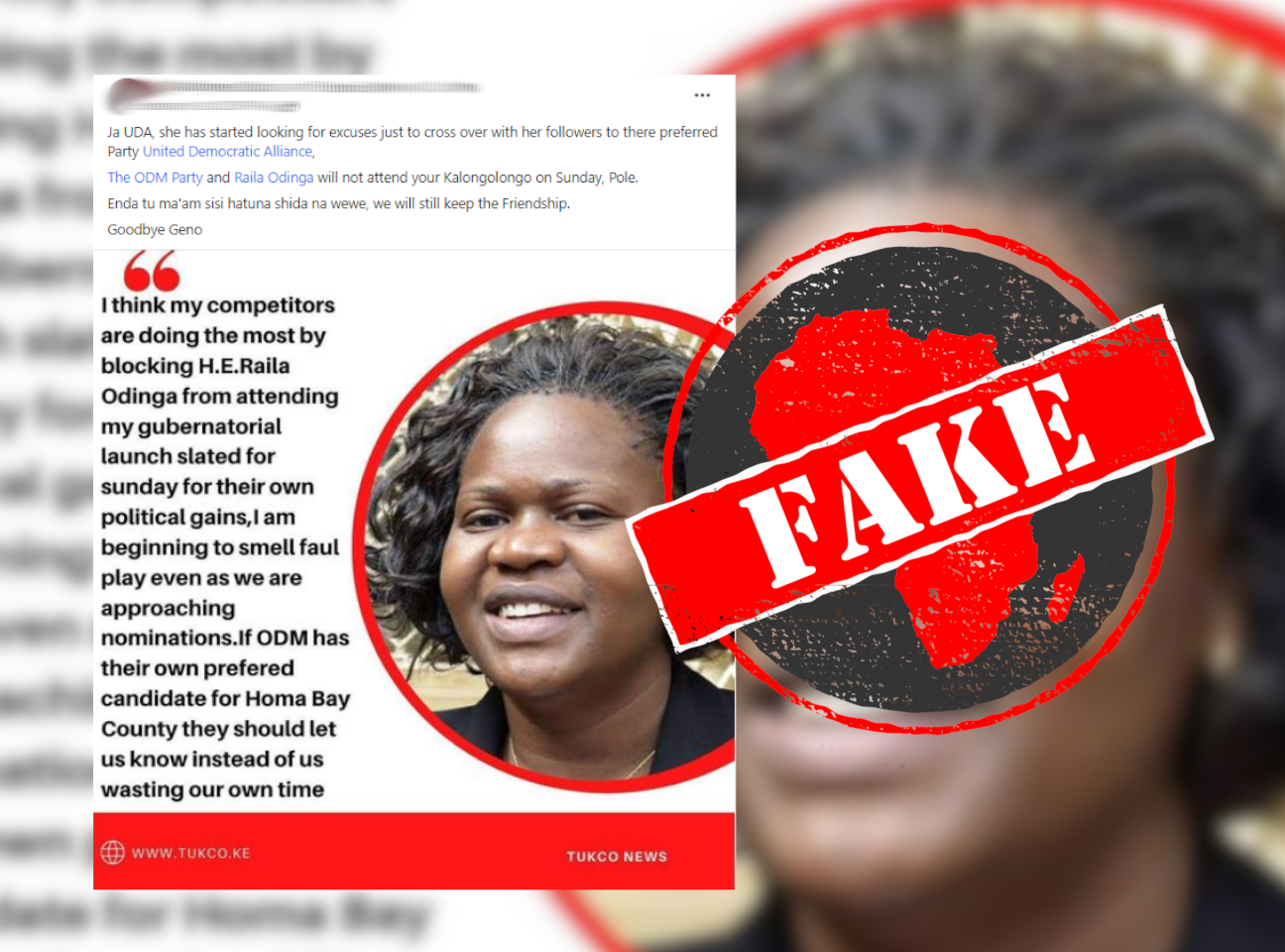A graphic circulating on Facebook in January 2022 quotes Gladys Wanga, member of parliament for Kenya’s western county of Homa Bay, as criticising the Orange Democratic Movement (ODM) political party.
“I think my competitors are doing the most by blocking H.E. Raila Odinga from attending my gubernatorial launch slated for Sunday for their political gains,” the quote reads. Odinga is the ODM’s leader.
“I am beginning to smell faul play even as we are approaching nominations. If ODM has their own preferred candidate for Homa Bay County they should let us know instead of us wasting our own time.”
Wanga will be standing for the Homa Bay county governor’s seat on the ODM ticket in Kenya’s August general elections. She launched her gubernatorial bid on 13 February.
The graphic uses the colours and design of Tuko, an award-winning Kenyan news website, and includes the site’s – misspelled – web address. But did Tuko really quote Wanga as saying this?

‘Kindly take note that this information is FAKE’
A credible news site like Tuko would be unlikely to produce a graphic riddled with spelling and grammar errors. Poor writing is often a sign of disinformation.
Africa Check searched for the graphic on Tuko’s verified Twitter account, but couldn’t find it.
But on 9 February, Tuko posted an altered version of the graphic – stamped “FAKE” – on Twitter.
Kindly take note that this information is FAKE and does not originate from https://t.co/daGAz9orRf.
— TUKO.co.ke | The Heartbeat of Kenya (@Tuko_co_ke) February 9, 2022
Verified information and templates from us are only posted on our social media platforms and website. pic.twitter.com/soUIk9urD4
“Kindly take note that this information is FAKE and does not originate from http://TUKO.co.ke,” the tweet reads. “Verified information and templates from us are only posted on our social media platforms and website.”
Republish our content for free
For publishers: what to do if your post is rated false
A fact-checker has rated your Facebook or Instagram post as “false”, “altered”, “partly false” or “missing context”. This could have serious consequences. What do you do?
Click on our guide for the steps you should follow.
Publishers guideAfrica Check teams up with Facebook
Africa Check is a partner in Meta's third-party fact-checking programme to help stop the spread of false information on social media.
The content we rate as “false” will be downgraded on Facebook and Instagram. This means fewer people will see it.
You can also help identify false information on Facebook. This guide explains how.


Add new comment